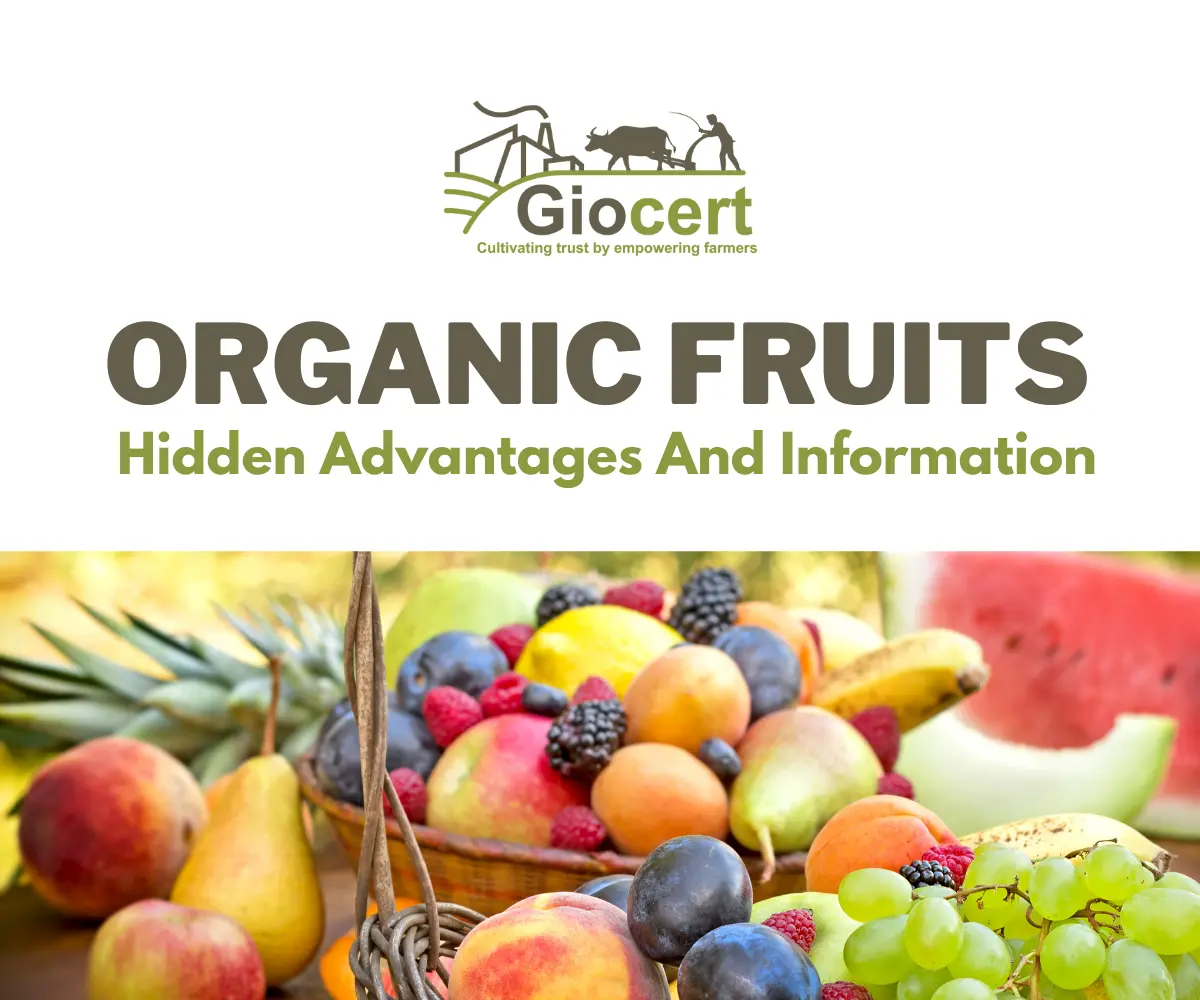Organic fruits are grown without the use of synthetic pesticides, chemical fertilizers, or genetically modified organisms (GMOs). These fruits are produced using organic farming methods that promote biodiversity, soil health, and sustainable agriculture. As more people become concerned about their health and the environment, organic fruits have gained popularity for their natural benefits.
How Are Organic Fruits Grown?
Organic farming practices rely on natural processes to grow fruits. Instead of using chemical fertilizers, organic farmers use compost, manure, and other organic matter to enrich the soil. Pests are managed using natural methods such as crop rotation, beneficial insects, and natural pesticides like neem oil. These methods help maintain the balance of the ecosystem, ensuring that the fruits are healthy and nutritious.
-
Higher Nutritional Value: Studies suggest that organic fruits often contain higher levels of vitamins, minerals, and antioxidants compared to conventionally grown fruits. These nutrients are essential for our body’s growth, development, and protection against diseases.
-
No Harmful Chemicals: Since organic fruits are grown without synthetic pesticides and fertilizers, they are free from harmful chemical residues. This makes them safer to eat, especially for children, pregnant women, and those with compromised immune systems.
-
Better Taste and Freshness: Many people find that organic fruits have a richer, more authentic taste compared to non-organic fruits. This is because organic farming focuses on quality rather than quantity, allowing the fruits to develop naturally.
-
Supports Environmental Health: Organic farming practices protect the environment by reducing pollution, conserving water, and promoting soil health. By choosing organic fruits, consumers help support farming practices that are kinder to the earth.
-
Promotes Biodiversity: Organic farms are often home to a variety of plants, insects, and animals. This biodiversity helps maintain a balanced ecosystem, which is crucial for the long-term sustainability of our food supply.
Challenges of Organic Farming
While organic fruits have many advantages, they are often more expensive than conventionally grown fruits. This is because organic farming is more labor-intensive and requires more time and care. Additionally, organic farmers may face challenges like lower yields and a higher risk of crop loss due to pests and diseases. However, the benefits to health and the environment often outweigh these challenges.
How to Identify Organic Fruits
When shopping for organic fruits, look for labels that indicate they are certified organic. In many countries, organic certification is given by official bodies that ensure the fruits are grown according to strict organic standards. These labels may include phrases like “100% Organic” or “Certified Organic.” Also, organic fruits are often smaller and less uniform in appearance than conventionally grown fruits, but this does not affect their quality or taste.
Conclusion
Organic fruits offer numerous hidden advantages, from better nutritional value to supporting environmental sustainability. While they may be more costly, the long-term benefits to our health and the planet make them a worthwhile investment. By choosing organic fruits, we are not only nourishing our bodies but also contributing to a healthier and more sustainable world.
Organic farming represents a return to traditional methods of agriculture, focusing on quality, sustainability, and respect for nature. As more people become aware of the importance of these practices, the demand for organic fruits continues to grow, paving the way for a healthier future.

